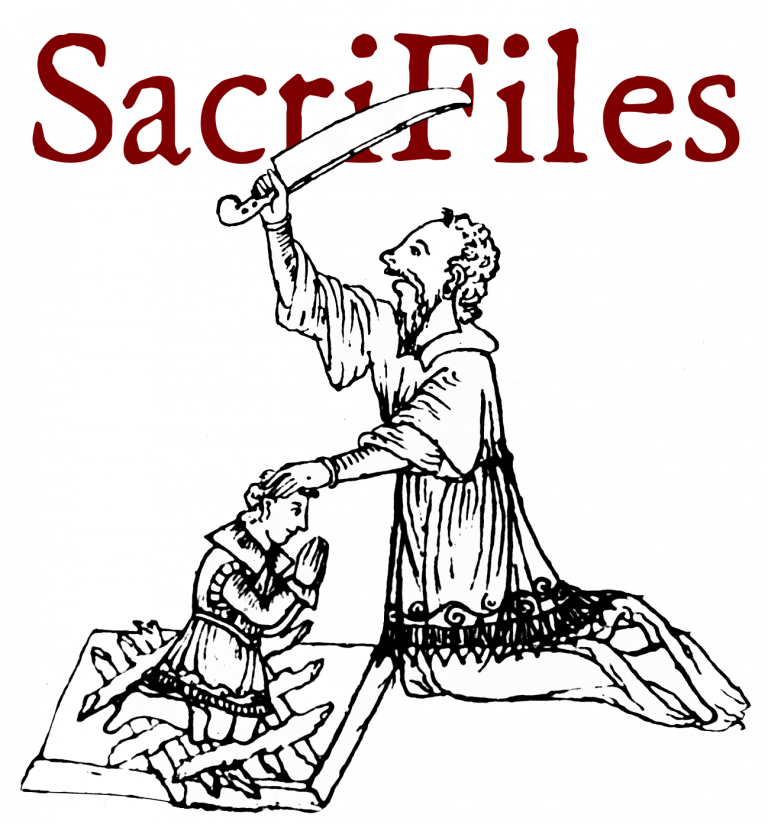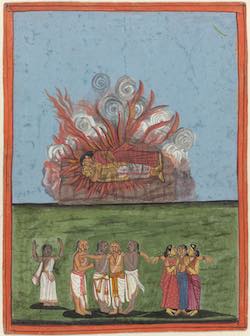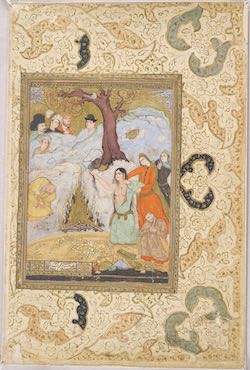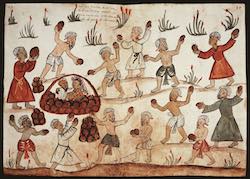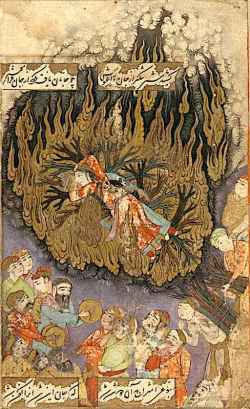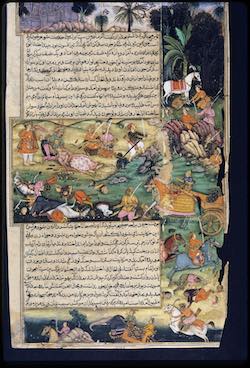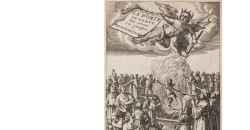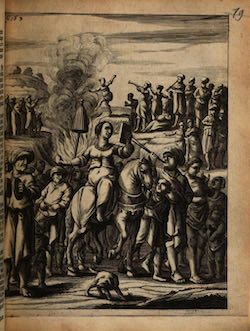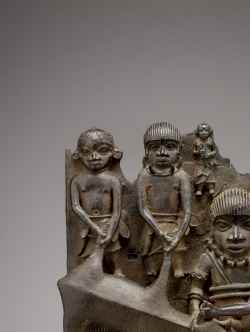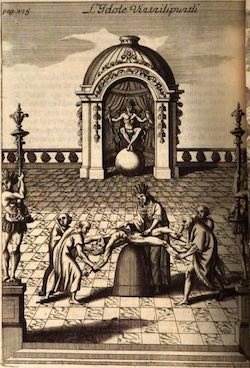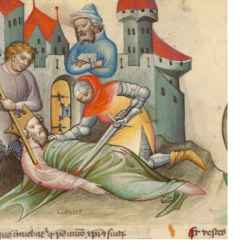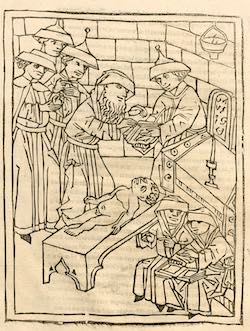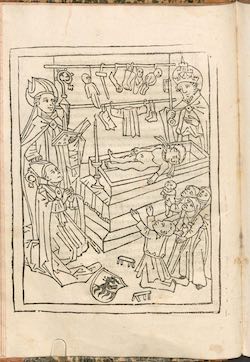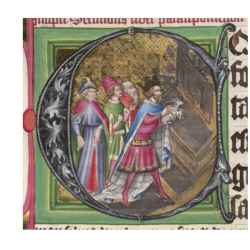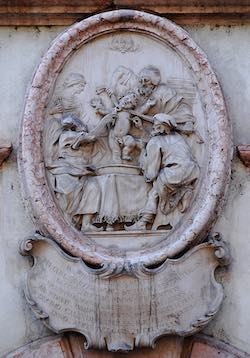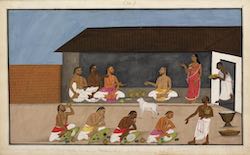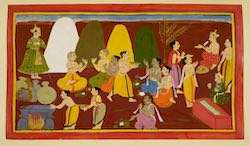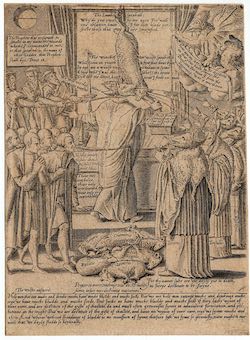Editor: Chiara Petrolini
Satī (17th)
from: Manuscript, Iran
Harvard Art Museums/Arthur M. Sackler Museum, The Norma Jean Calderwood Collection of Islamic Art
Sati Funeral Practice (1611)
from: Johannes Isacius Pontanus, "Rerum et urbis Amstelodamensium historia", Amsterdam, 1611, p. 189
Satī. Gentile women of the caste of the cattle drivers, who is buried alive with her husband after he had died [1540]
Codice Casanatense, Biblioteca Casanatense, ms. 1889, fol. 64r, Rome
Satī. The bride immolates herself on the funeral pyre (1657)
from: Isfahan, Iran
The Israel Museum, Jerusalem
Satrughna is wounded by Kusa and Lava during Rama's horse-sacrifice (1616)
from: Leaf from a dispersed manuscript of Razmnama
Harvard University, Fine Arts Library, SS_22349926
Scene of a Sati, with a woman throwing herself into the flames amid a crowd playing trumpets. Above, a winged devil holds the banner with the book's title and the torch with which he lights the ritual fire. (1670)
from: Abraham Rogerius, Le Théâtre de l’idolatrie ou la porte ouverte, Amsterdam, Jean Schipper, 1670, title page
Scene of a sati. In the foreground, a widowed woman (encountered by Della Valle on November 12, 1623) on horseback holds a mirror and a lemon amidst a crowd. In the background, a woman throws herself into the flames of a funeral pyre (1665)
from: Della Valle, Pietro, De volkome beschryving der voortreffelijke reizen van de deurluchtige reisiger Pietro della Valle, edelman van Romen, in veel voorname gewesten des werrelts, sedert het jaer 1615, tot in 't jaar 1626 gedaan. Amsterdam, Abraham Wolfgang, 1666, vol. 5, pag. 163
Scene of cow sacrifice on a relief brass plaques (16th-17th)
from: Benin City, Nigeria
British Museum, London
Scene of worship and human sacrifice at a native American or Mexican temple (1691)
from: Antonio de Solís y Rivadeneira, Histoire de la conquête du Mexique, ou de la Nouvelle Espagne, Paris, Boudot, 1691. p. 275
Self-sacrifice of King Codrus of Athens (1432)
from: Speculum humanae salvationis, Madrid, Biblioteca Nacional de España, Ms Vit. 25-7 (olim B. 19), fol. 24r
Biblioteca Nacional de España, Madrid
Simon of Trent’s corpse (“victima”) (1475)
from: Historie von Simon zu Trient [Bayerische StaatsBibliothek, 2 Inc.s.a. 62#Beibd], fol. 5v
Bayerische Staatsbibliothek, Munich
Simon on the altar (“victima”) (1475)
from: Historie von Simon zu Trient [Bayerische StaatsBibliothek, 2 Inc.s.a. 62#Beibd], fol. 9v
Bayerische Staatsbibliothek, Munich
Solomon sacrifices at Gabaon (1428)
from: Bayerische Staatsbibliothek - Clm 15701, fol. 144v
Bayerische Staatsbibliothek, Munich
The Ekahum ceremony, consisting of the release of a bull. A young bull stands in the courtyard of the deceased's house. His eldest son performs a sacrifice with rice, plantains and three brass pots of water decorated with mango leaves. The widow is dressed in her finest clothes and a feast is given to the Brahmins (ca 1820)
from: The Lives of the Brahmins [Ms Add.Or. 4354]
British Library, London
The feast before the sacrifice (1712)
from: Ramayana, Bala Kanda, Ms Add. 15295, fol. 31
British Library, London [from Udaipur]
The Lambe speaketh. Anti-catholic satire with a wolf-headed Stephen Gardiner, Bishop of Winchester, biting the neck of a sacrificial lamb suspended by its hind legs above an altar; to right, the bishops of London and Durham, the dean of Westminster and other Roman Catholic clerics (all with wolves' heads) drink the blood that spurts from the lamb; at Gardiner's feet lie six further lambs bearing the names of Cranmer, Ridley and other Protestant reformers; at upper left, three men pull at a rope tied around Gardiner's neck (members of the House of Lords who threw out Gardiner's heresy bill on 1 May 1554) while at lower left a group of gullible men (the Commons who had passed the bill a month earlier) are attached from rings in their noses to a rope around Gardiner's waist; the Pope as the devil appears top right (1555)
British Museum, London
